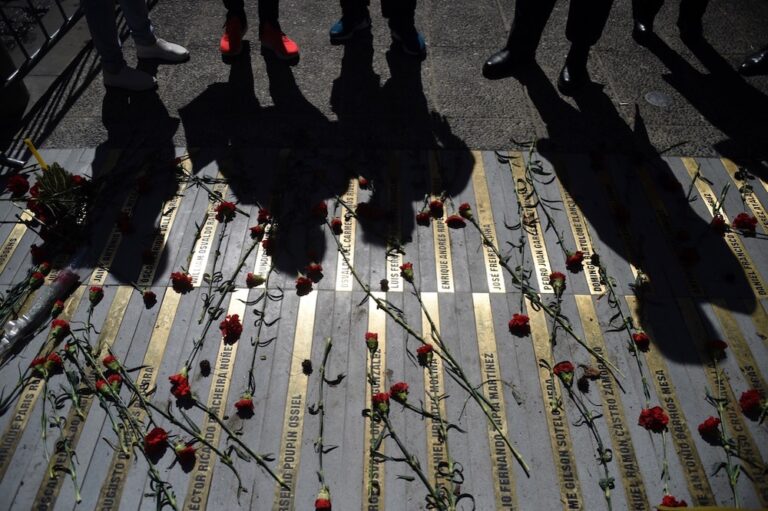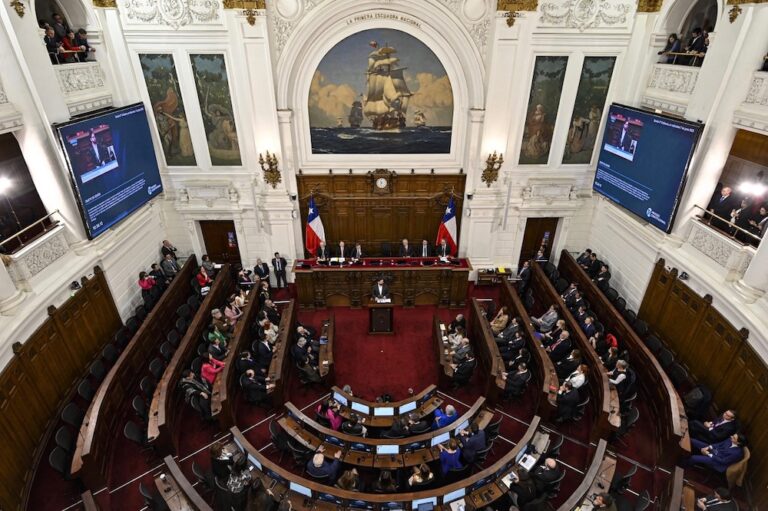(HRW/IFEX) – The following is a 10 December 2003 Human Rights Watch press release: Chile: Draft Privacy Law a Grave Setback for Free Expression (Washington DC, December 10, 2003) — The new privacy bill approved by Chile’s lower house of Congress is a serious setback for freedom of expression, Human Rights Watch said today. The […]
(HRW/IFEX) – The following is a 10 December 2003 Human Rights Watch press release:
Chile: Draft Privacy Law a Grave Setback for Free Expression
(Washington DC, December 10, 2003) — The new privacy bill approved by Chile’s lower house of Congress is a serious setback for freedom of expression, Human Rights Watch said today.
The bill, which the Chamber of Deputies approved late yesterday evening after a rushed debate, would subject media found responsible for “illegitimate interference” in a person’s privacy to substantial civil damages and possible criminal prosecution. The vote reverses an encouraging legislative trend toward greater protection for freedom of expression in Chile.
“Just when Chile was beginning to relax its tight controls on free expression, the country’s politicians have gotten cold feet,” said José Miguel Vivanco, executive director of the Americas Division of Human Rights Watch. “The Chilean Senate should reject this draft legislation, which would have a powerful chilling effect on press freedom if it were passed.”
“Illegitimate interference,” as it is broadly defined in the draft legislation, includes revealing details about the private lives of public figures or their families; using concealed tape-recorders, videocams, or cameras to capture private conversations or events; publishing letters, memoirs and private writings without authorization, and publishing unauthorized photographs of public figures other than during public events or in public places.
The bill goes far beyond what is necessary to address valid privacy concerns. Most importantly, the bill contemplates no exception to media liability where there is a strong public interest in the information. Media that use material considered private-even if to unmask criminal activities or corruption by public officials-could be penalized by crippling awards of damages.
On the same day that the privacy bill was approved, Chile’s lower house of Congress also voted to remove from the Criminal Code the provisions that prohibit strongly worded criticism of the president, members of Congress and senior courts-the so-called desacato law. Many lawmakers insisted that they would vote for this long overdue measure only if a tough new law protected their privacy.
During the year government officials and members of Congress have been under intense media scrutiny amid a string of corruption scandals. The Chilean press has been dominated by a court investigation into allegations that some senators may have participated in sex acts involving child prostitutes. The media has played a vigorous role in uncovering these incidents, but politicians from both the government and opposition benches in Congress have accused journalists of irresponsibility and sensationalism.
“Freedom of expression campaigners have waited for years for repeal of the desacato law,” Vivanco said. “It is extremely disappointing that progress on this issue has been overshadowed by the restrictive privacy bill.”
The draft bill now goes to the Senate, Chile’s upper house of Congress, for debate.
For more information on human rights in Chile: http://www.hrw.org/americas/chile.php


